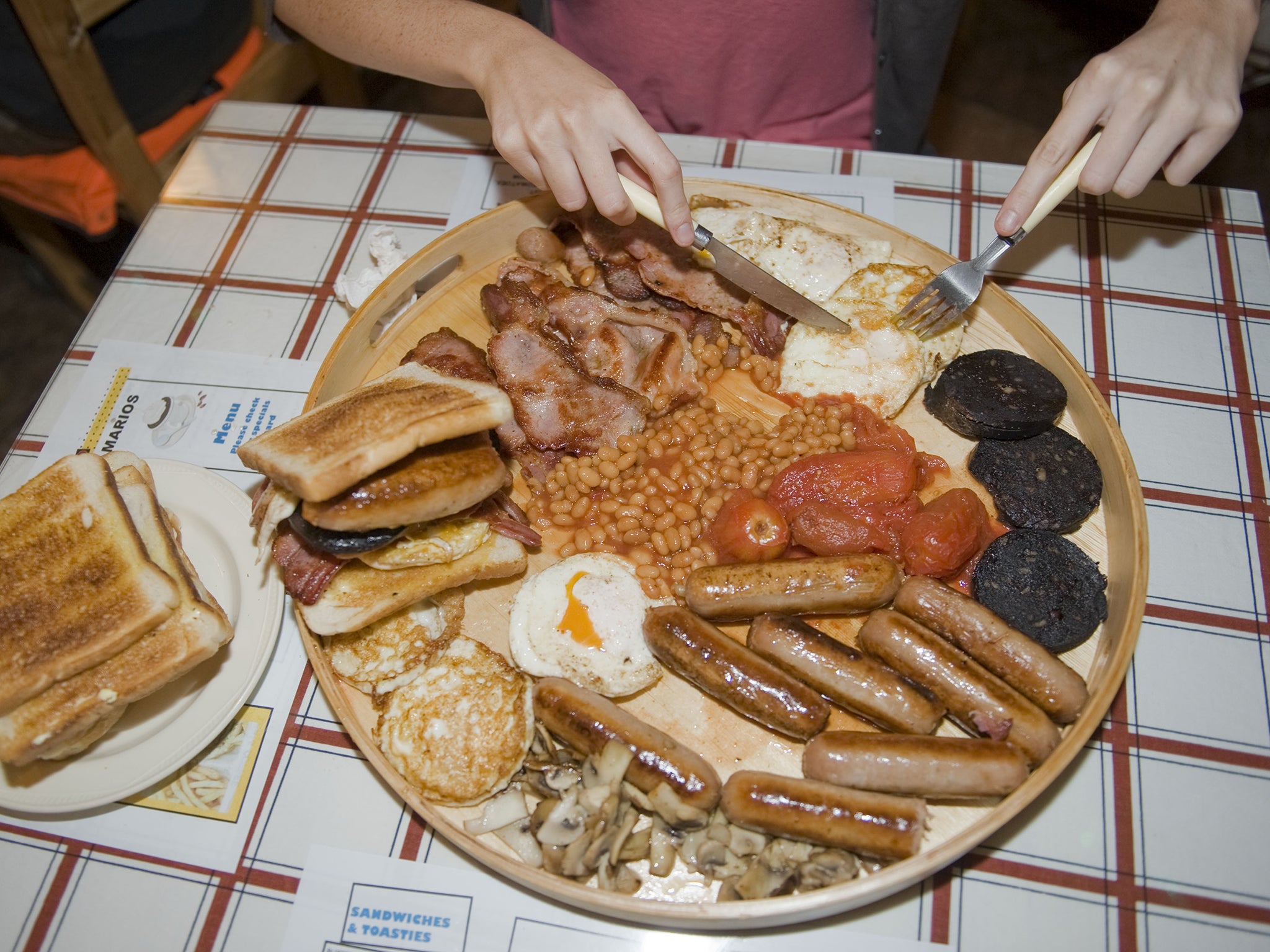Serving food on a larger plate 'makes people eat more'
Researchers say a smaller plate could cut consumption by up to 16%

Offering super-sized portions or serving food on a larger plate leads people to eat more, according to University of Cambridge research.
Even people who keep an eye on what they eat were susceptible to consume more if bigger portions were offered, the study found.
The researchers said that if people were exposed to smaller portions across all aspects of their diet, their food consumption could be cut by up to 16 per cent – equivalent to 280 calories.
Dr Gareth Hollands, of Cambridge’s Behaviour and Health Research Unit, who co-led the study, said that while their findings might seem to state the obvious, they challenged assumptions that a lack of self-control was the only reason people overeat.
“Helping people to avoid ‘overserving’ themselves or others with larger portions of food or drink by reducing their size, availability and appeal in shops, restaurants and in the home, is likely to be a good way of helping lots of people to reduce their risk of overeating,” he said.
Dr Alison Tedstone, chief nutritionist at Public Health England, said: “Given that almost two-thirds of adults are overweight or obese, it’s important to keep an eye on portion sizes when cooking, shopping and eating out to avoid overeating and help maintain a healthy weight.”
The findings, a new assessment of 61 previous studies covering more than 6,700 participants, are published in the Cochrane Database of Systematic Reviews.
Join our commenting forum
Join thought-provoking conversations, follow other Independent readers and see their replies
Comments